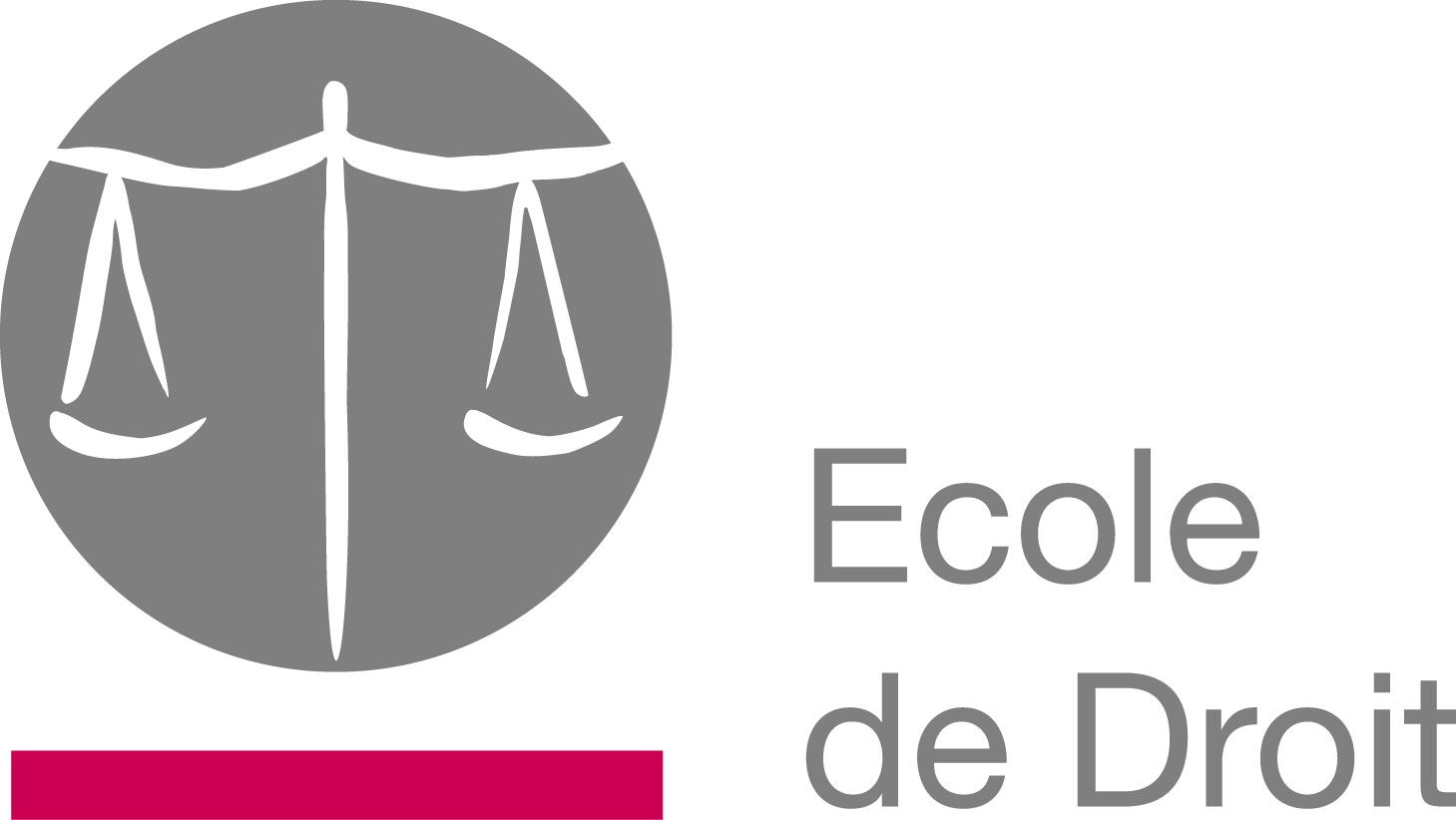 | Study programme 2018-2019 | Français | |
 | European Union Law | ||
Programme component of Bachelor's Degree in Law à l"Law School |
| Code | Type | Head of UE | Department’s contact details | Teacher(s) |
|---|---|---|---|---|
| UD-B3-BDROIT-003-M | Compulsory UE | FINCK François | EX12 - Université Libre de Bruxelles |
|
| Language of instruction | Language of assessment | HT(*) | HTPE(*) | HTPS(*) | HR(*) | HD(*) | Credits | Weighting | Term |
|---|---|---|---|---|---|---|---|---|---|
| Français | 48 | 12 | 0 | 0 | 0 | 10 | 10.00 | Année |
| AA Code | Teaching Activity (AA) | HT(*) | HTPE(*) | HTPS(*) | HR(*) | HD(*) | Term | Weighting |
|---|---|---|---|---|---|---|---|---|
| D-SCJU-307 | European Union Law - Part 1 | 48 | 0 | 0 | 0 | 0 | Q1 | 80.00% |
| D-SCJU-313 | European Union Law - Part 2 | 0 | 12 | 0 | 0 | 0 | Q2 | 20.00% |
| Programme component | ||
|---|---|---|
 | UD-B2-BDROIT-003-M Civil Law : Civil Rights and Obligations, General Contract Law and Civil Liability | |
 | UD-B3-BDROIT-006-M Economic and Intellectual Property Law | |
Objectives of Programme's Learning Outcomes
- Acquire the basic knowledge to understand the legal mechanisms in order to understand the concepts, techniques and terminology to express a rigorous legal thought
- Understand the organisation of powers to identify institutions and sources of law
- Have foundation of legal knowledge in order to work with more refined knowledge and legally consider increasingly complex situations
- Develop appropriate strategies to systematically update their legal knowledge
- Use language as a tool of legal thinking to understand the concepts, techniques and terminology to express a rigorous legal thought
- Choose appropriate and accurate legal terminology according to the context
- Express thoughts constructively and rigorously
- Understand referencing rules for documentary sources
- Transform a legal issue in order to apply a pragmatic approach of the law to resolve specific issues
- Understand legal research tools and techniques for effective reading
- Apply the rules of positive law in solving a case study
- Implement the various techniques of interpretation and argumentation in order to apply a pragmatic approach of the law to solve specific issues
- Weigh up the importance given to each source
- Exploit the argumentative value of comparable cases to build legal consistency
- Think critically about legal interpretations proposed in legal literature and case law
- Defend a point of view in order to apply a pragmatic approach of the law to resolve specific issues
- Consolidate legal positions by formulating arguments and reasoned conclusions
- Structure legal reasoning by intelligently and accurately using analogy and syllogism, both orally and in writing
- Assess and demonstrate sound reasoning
- Anticipate conflicting constructions and respond to them in a well-argued and convincing way
- Link law to issues of justice and social purpose in order to activate knowledge to reflect critically and constructively on positive law
- Learn the different concepts of justice
- Compare these different concepts to legislation in order to interpret and apply it appropriately
- Combine rigorous technique whilst taking into account ethical considerations in their approach
- Consider the practical requirements and needs of a company for which the law can provide solutions
- Understand the development and application of the law in a critical manner in order to activate knowledge to reflect critically and constructively on positive law
- Identify social and political issues of legal phenomena
- Place rules in a social context to understand the challenges and choices that stakeholders face
- Consider the relationships of power in the development and application of law
- Introduce interdisciplinarity in their analysis and perception of the law in order to activate knowledge to reflect critically and constructively on positive law
- Question the specifics of a legal approach in relation to other human sciences related to law
- Develop critical thinking skills based on this introduction to humanities
- Foster a transversal approach to law
Learning Outcomes of UE
Not applicable
Content of UE
Not applicable
Prior Experience
Not applicable
Type of Assessment for UE in Q1
- Written examination
Q1 UE Assessment Comments
Not applicable
Q2 UE Assessment Comments
Not applicable
Type of Assessment for UE in Q3
- Written examination
Q3 UE Assessment Comments
Not applicable
Q1 UE Resit Assessment Comments (BAB1)
Not applicable
Type of Teaching Activity/Activities
| AA | Type of Teaching Activity/Activities |
|---|---|
| D-SCJU-307 |
|
| D-SCJU-313 |
|
Mode of delivery
| AA | Mode of delivery |
|---|---|
| D-SCJU-307 |
|
| D-SCJU-313 |
|
Required Reading
| AA | |
|---|---|
| D-SCJU-307 | |
| D-SCJU-313 |
Required Learning Resources/Tools
| AA | Required Learning Resources/Tools |
|---|---|
| D-SCJU-307 | Not applicable |
| D-SCJU-313 | Not applicable |
Recommended Reading
| AA | |
|---|---|
| D-SCJU-307 | |
| D-SCJU-313 |
Recommended Learning Resources/Tools
| AA | Recommended Learning Resources/Tools |
|---|---|
| D-SCJU-307 | Not applicable |
| D-SCJU-313 | Not applicable |
Other Recommended Reading
| AA | Other Recommended Reading |
|---|---|
| D-SCJU-307 | Not applicable |
| D-SCJU-313 | Not applicable |
Grade Deferrals of AAs from one year to the next
| AA | Grade Deferrals of AAs from one year to the next |
|---|---|
| D-SCJU-307 | Unauthorized |
| D-SCJU-313 | Authorized |
(*) HT : Hours of theory - HTPE : Hours of in-class exercices - HTPS : hours of practical work - HD : HMiscellaneous time - HR : Hours of remedial classes. - Per. (Period), Y=Year, Q1=1st term et Q2=2nd term